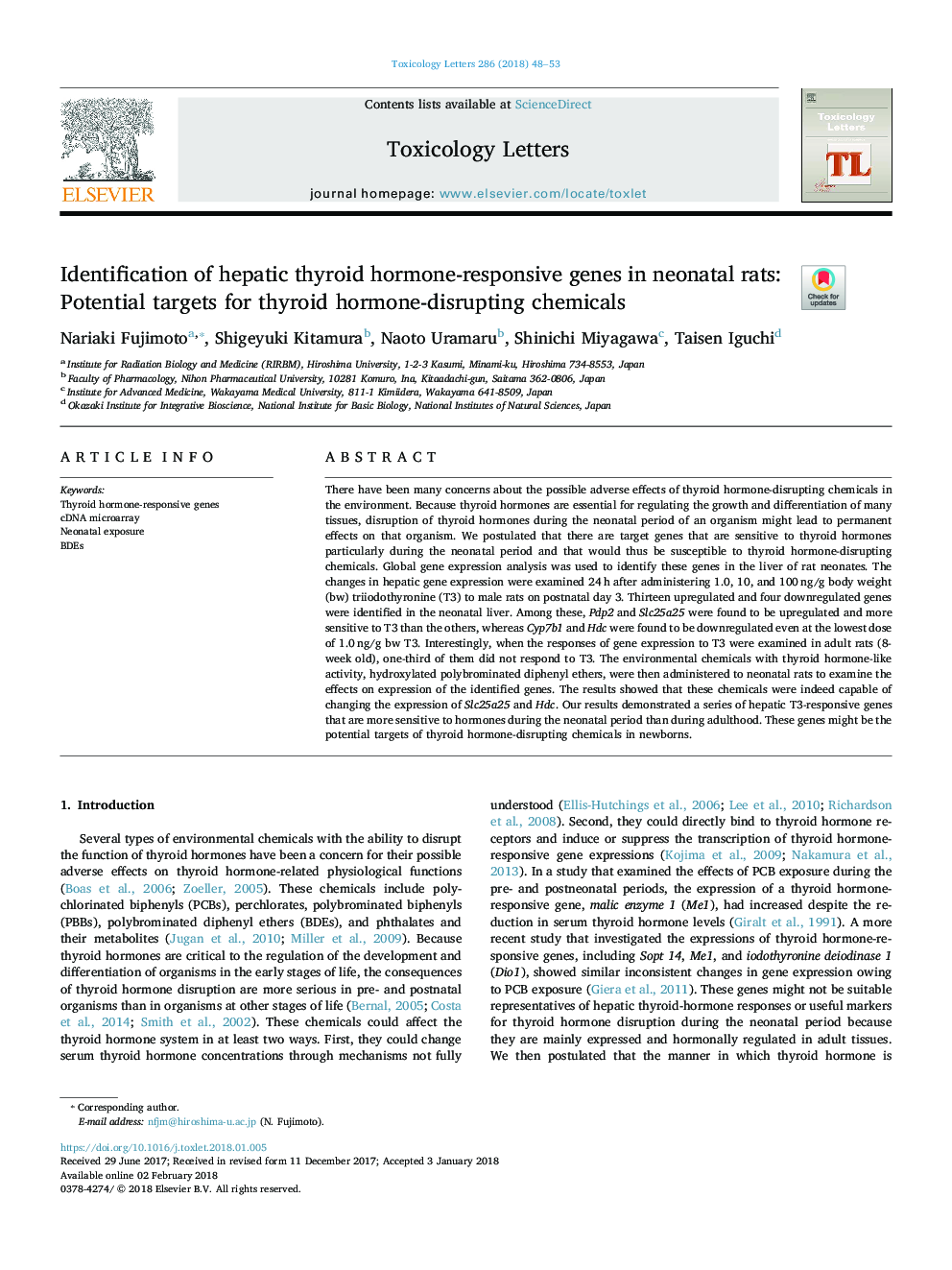| Article ID | Journal | Published Year | Pages | File Type |
|---|---|---|---|---|
| 8553402 | Toxicology Letters | 2018 | 6 Pages |
Abstract
There have been many concerns about the possible adverse effects of thyroid hormone-disrupting chemicals in the environment. Because thyroid hormones are essential for regulating the growth and differentiation of many tissues, disruption of thyroid hormones during the neonatal period of an organism might lead to permanent effects on that organism. We postulated that there are target genes that are sensitive to thyroid hormones particularly during the neonatal period and that would thus be susceptible to thyroid hormone-disrupting chemicals. Global gene expression analysis was used to identify these genes in the liver of rat neonates. The changes in hepatic gene expression were examined 24â¯h after administering 1.0, 10, and 100â¯ng/g body weight (bw) triiodothyronine (T3) to male rats on postnatal day 3. Thirteen upregulated and four downregulated genes were identified in the neonatal liver. Among these, Pdp2 and Slc25a25 were found to be upregulated and more sensitive to T3 than the others, whereas Cyp7b1 and Hdc were found to be downregulated even at the lowest dose of 1.0â¯ng/g bw T3. Interestingly, when the responses of gene expression to T3 were examined in adult rats (8-week old), one-third of them did not respond to T3. The environmental chemicals with thyroid hormone-like activity, hydroxylated polybrominated diphenyl ethers, were then administered to neonatal rats to examine the effects on expression of the identified genes. The results showed that these chemicals were indeed capable of changing the expression of Slc25a25 and Hdc. Our results demonstrated a series of hepatic T3-responsive genes that are more sensitive to hormones during the neonatal period than during adulthood. These genes might be the potential targets of thyroid hormone-disrupting chemicals in newborns.
Keywords
Related Topics
Life Sciences
Environmental Science
Health, Toxicology and Mutagenesis
Authors
Nariaki Fujimoto, Shigeyuki Kitamura, Naoto Uramaru, Shinichi Miyagawa, Taisen Iguchi,
